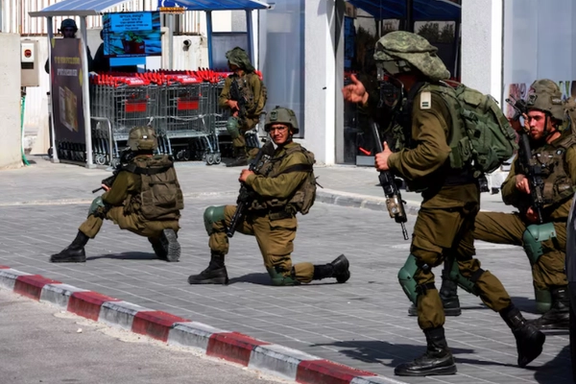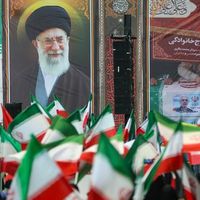“This attack is just the beginning of a long war between Israel and Iran,” said Brigadier General (res.) Amir Avivi. “There will be a big attack, but one of many."
Avivi, a close friend and Caesarea neighbor of Prime Minister Benjamin Netanyahu, is regularly consulted by key government ministers.
The targets for Israel’s retaliation to Tehran’s ballistic missile attack on Oct 1 have yet to be disclosed, but Avivi said what Israel chooses to strike is not of importance because that’s just the beginning and not a means to an end.
He warned that Israel’s endgame is to ensure that Iran does not become a nuclear power.
“Israel has also prepared quite a few surprises for Iran,” he said over a zoom interview with Iran International.
When asked what he meant by “surprises”, he would not elaborate.
“I can’t go into details, but we’ve prepared many, many interesting surprises,” he added.
Avivi, who retired from the Israeli military seven years ago, was responsible for the audit of military readiness and held several senior roles. He’s also the founder and chairman of the Israeli Defense and Security Forum (IDSF). His organization is made up of more than 30,000 former Israeli military soldiers and officers and is influential in Israeli politics.
How long he anticipates the potential war between Iran and Israel to last will likely depend on the outcome of the US presidential elections, according to Avivi.
“If the US decides to join with Israel and build a coalition and deal with the Iran military, what Israel did in a week or two can be done in Iran in a few days if the US leads an attack. If the US continues with their policies of appeasement. Then Israel will have to deal with this alone and this will take time.”
He feels that a Harris presidency would continue its policy of appeasement to Iran, forcing Israel to be alone in its fight, believing that a Trump administration would assist Israel in a military coalition. He foresees an Abrahamic alliance with Sunni countries in opposition of a Shia axis.
A red line: Drone attack on Israeli Prime Minister residence
Avivi said his wife was awoken from the sound of a drone attack on Israeli Prime Minister Benjamin Netanyahu private residence in their northern coastal town of Caesarea Saturday morning. His wife, an ambulance driver, immediately drove to the scene and found superficial damage to the home.
Netanyahu and his wife, who frequent their seaside home on weekends, were not home at the time.
In a statement posted to X, the Israeli Prime Minister blamed Iran for the alleged attempt on his life.
“The attempt by Iran’s proxy Hezbollah to assassinate me and my wife today was a grave mistake.”
Avivi described the drone attack as legitimacy to go after Iran’s leadership.
When asked if that would mean Iran's Supreme Leader Ayatollah Ali Khamanei, he replied yes.
Aviv said Israel sees an opportunity here, and dealing with Iran, which is located more than 1,000 miles away, is a process that will take time.
Iran has distanced itself from the attempted attack on Netanyahu’s residence and pointed the finger at Hezbollah.
However, Mohsen Sazegara, a journalist and political analyst, told Iran International that Saturday’s attack was carried out by the IRGC, which has assumed control of Hezbollah's operations following the assassination of its leader, Hassan Nasrallah.








